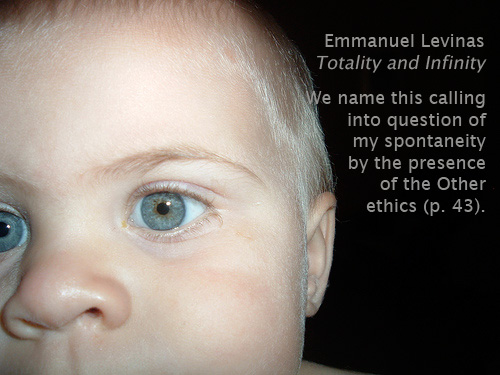
Rhetorical Support
My experiences with my daughter's cancer and with social media have oriented me away from a primary interest in what a consciousness does with rhetoric and toward an interest in what rhetoric does with consciousness. It is on the basis of this change in interest that I advocate for a rhetorical-ethics more attuned to attending to others than to explicitly (or intentionally) changing them. Building off of Levinas, we cannot help, by our very presence, to disturb and thus change an other. We can, however, develop a rhetorical-digital-compositional-ethical practice that takes such change into account. Drawn from Madeline's email, my theory of rhetorical support aims to suggest a praxis informed by a delicate balance between courage, humility, and knowledge. We can think here of Wikipedia's contradictory mantra: "Be bold ...but please be careful."
Intersubjectivist ethics go beyond notions of discourse community. It's not just about people getting together to construct knowledge. It is a further recognition that getting together (re)produces identity or challenges it, depending on the scene and the tenor of the interlocutors. Before we make knowledge, we have to make each other. And, I'll suggest, the willingness to contact an other requires a very particular courage. [Note 3]